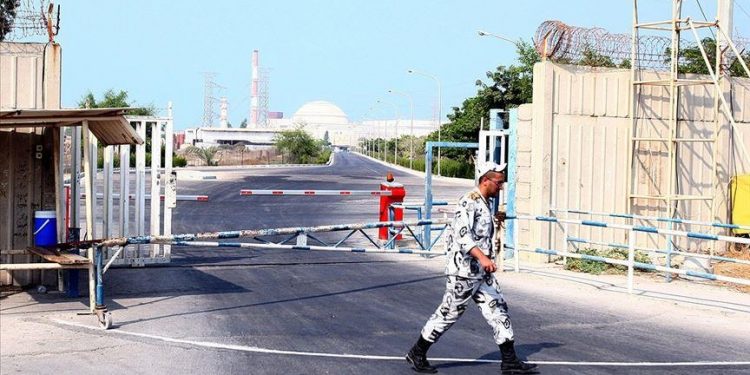BERLIN
The US warned Iran on Wednesday that time was running out when it came to international diplomatic efforts to rescue the 2015 nuclear accord.
“I’m not going to put a date on it, but we are getting closer to the point at which a strict return to compliance with the JCPOA does not reproduce the benefits that that agreement achieved,” said Antony Blinken, addressing a news conference with his German counterpart Heiko Maas at the US air base in the southwestern German town of Ramstein on the occasion of an international conference on Afghanistan.
The Iranian nuclear deal is commonly known as the Joint Comprehensive Plan of Action (JCPOA).
“There is a point at which it would be very difficult to regain all the benefits of the JCPOA by returning to strict compliance with the JCPOA. We are not at that point yet, but it’s getting closer, and that’s why we have been very clear that the ability to rejoin the JCPOA, mutual return, mutual compliance is not indefinite,” Blinken added.
On Tuesday, the US envoy for the Iran nuclear talks, Robert Malley, departed Washington for Russia and France for what the State Department said would be “for consultations with our Russian and European partners on Iran’s nuclear program and the need to quickly reach and implement an understanding on a mutual return” to the JCPOA.
Meanwhile, the German foreign minister called once again on Iran’s new government to “return more swiftly to the negotiating table.”
His remarks came after Iran’s new foreign minister indicated last week that his country’s return to the nuclear talks in Vienna could still be months away.
Hossein Amir-Abdollahian was quoted by Iran’s IRIB state broadcaster as saying that the other sides participating in the talks understand that it would take “two or three months” for the new government to be established and prepare.
Maas, who had a phone call with Amir-Abdollahian last week, said such a time span was “far too long.”
Germany’s top diplomat stressed, however, that he was still upbeat on “a positive conclusion” of the Iran nuclear accord.
Delegations from the JCPOA’s signatories the UK, France, Germany, Russia and China launched efforts in April to bring Tehran and Washington, which abandoned the deal in 2018, back into its fold. After the June 18 election victory of Iranian President Ebrahim Raeisi, these negotiations in Vienna were suspended.
In the talks, Iran demands that all Western sanctions be lifted, while its interlocutors seek to reinstate controls on its nuclear program.






